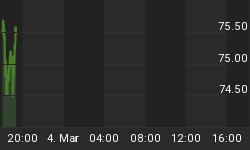We don't have all the answers. But we do have 30-plus years of market experience on our side.
As the books were closed on 2015, the Chicago Tribune reported:
"After a dismal stock finish to 2015, your natural conclusion might be: Why did I bother?
"The Standard & Poor's 500 finished the year down 0.73%... The DJIA suffered its worst year since the 2008 financial crisis, declining 2.2%... Only the Nasdaq ended the year up... 5.7%...
"...energy stocks as a group plunged 24%, and individually, many fell 30 or 40%. The energy plunge hurt unsuspecting retirees as master limited partnerships, or MLPs, dropped 36% -- a shock since analysts previously claimed that pipelines and other infrastructure in MLPs would be immune to an energy crash. Another retiree favorite for dividends -- utility funds -- lost 9% in 2015, according to Morningstar.
"Bond funds weren't comforting either. The average bond fund investing in a broad mix declined about 2% ......junk bond funds have declined 4% on average, according to Morningstar."
We're only a few trading days into 2016 -- yet, so far, the new year isn't looking any more promising. Right now, you may be scrambling to make sense of the DJIA's huge tumble on Monday. (It was, in fact, the Dow's worst intraday start to the year since 1932 and worst full first day start since 2008.) This excerpt from our December Elliott Wave Financial Forecast (published Dec. 4) may help:
"According to the consensus view, the thinking inside the Fed is that the economy is finally healthy enough to return borrowing costs to 'more 'normal' levels.' Such a move would actually be consistent with many of the most important market peaks in history, such as September 1929 and January 2000 when the Fed famously 'pulled the punch bowl' by increasing the Federal Funds rate as stocks reached the extremes of major advances. China did something similar in 2007, raising borrowing costs several times. The Shanghai Composite Index made its all-time high in October 2007.
"Of course there is one big difference: On each of those occasions, the central bank rate hike was part of a series that pushed rates through 6%. This time, the rise will be the first in more than six years, and it will come from a virtually non-existent level of 0.25%. With the economy so much weaker, some will view it as the straw that broke the back of the global economy.
"The truth is that the Fed is succumbing to the feel-good sentiment of a peak in positive social mood by doing what it has always done in the past; confidently raising interest rates just before the start of a major bear market."
In the days to come, you may hear opinions that the stock market turmoil is the fault of the Fed. Note that the argument we make is more nuanced. We track and forecast Elliott waves, or waves of social mood, and there is a history of central banks acting confidently by raising rates just as the mood (as reflected by the stock market) hits a peak.
So, where does that leave us?
We don't have all the answers. We do what we've done for more than three decades: Study the wave patterns, look at key sentiment indicators, compare them to previous tops and bottoms -- and put it all together to give you a forecast and a unique perspective on how markets behave.
Read our new report, Risk ON? Risk OFF? Find Out Where Your Money Lies. The editors of our Financial Forecast Service, Steve Hochberg and Pete Kendall, have been tracking a "steady global shift to greater financial conservatism over the last 18 months." They have just published this new report detailing all of their findings. Read Their Complete Report >>
This article was syndicated by Elliott Wave International and was originally published under the headline Making Heads or Tails of This Market. EWI is the world's largest market forecasting firm. Its staff of full-time analysts led by Chartered Market Technician Robert Prechter provides 24-hour-a-day market analysis to institutional and private investors around the world.















